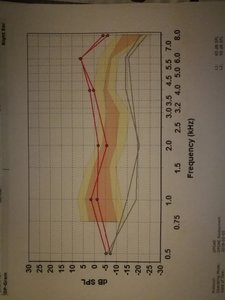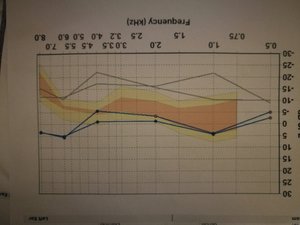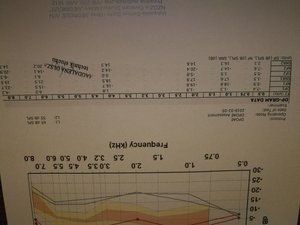Attempting to arrive an objective diagnosis for a condition such as tinnitus is fairly difficult. The best approach is to consider patient history (e.g. noise exposure, medication used, as well as accidents and incidents). This provides a clue.
Hearing loss can go undetected by standard audiometry and an auditory insult can linger on for a period of time after the original source has long been removed while causing further damage (and includes noise exposure that only led to a temporary threshold shift in the original instance!). This insidious process – which involves the loss of synapses before the loss of inner ear hair cells – has been described by recent literature and can also be observed by the
profile page of Prof. Kujawa:
"An area of current focus in Dr. Kujawa's laboratory is the aging of noise-exposed ears.
She has discovered an insidious process that begins acutely after noise, as a loss of communications (synapses) between sensory inner hair cells and cochlear neurons. Loss of the neurons themselves follows slowly, but ultimately reaches the same magnitude. These effects of noise immediately and permanently change the way the ear processes sound information, and they occur even when the exposure produces only temporary changes in hearing thresholds; i.e., for exposures previously thought to be 'safe'.
Moreover, she has shown that such exposures dramatically accelerate the gradual loss of cochlear synapses and cochlear neurons otherwise seen with aging alone. This work has provided the first clear evidence that noise exposure continues to have damaging effects on the ear and hearing long after the noise has stopped.
Ultimately, noise exposure should be regulated, and its consequences diagnosed and treated, in ways consistent with improved understanding of underlying processes and pathology. Thus, this work informs efforts to develop better clinical tests and to identify effective pharmacologic therapies for these common forms of hearing loss, and should guide hearing conservation efforts aimed at better protecting the public health."
The interested reader can read more about the topic via literature such as:
- Cochlear Synaptopathy In Acquired Sensorineural Hearing Loss: Manifestations And Mechanisms (2017)
- Noise-Induced And Age-Related Hearing Loss: new Perspectives And Potential Therapies (2017)

 Member
Member


